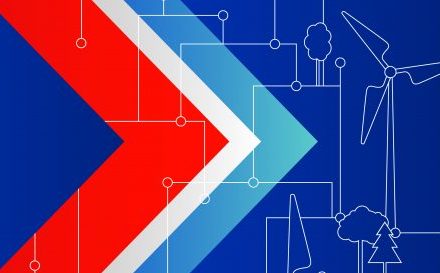07 - DLT 4 financing the energy transition
Tokenisation of Energy and Fractional Ownership of Digital Assets provide new possibilities for financing PV-projects.
Project based on this challenge:
07 - Governance of DLT 4 Financing Blockchain
Energy & Climate Hack
Training
Background
Cities emit **75 %** of the worldwide energy-related CO2-Emissions. More than **65 %** of the wolrd’s population will live in cities by 2050. **80%** of the global GDP is produced in cities and is at risk [1]. **The Problem** Globally **1.1tn USD** are needed annually to finance green urban infrastructure [1]. Switzerland needs annually **12.9 bn CHF** to achieve its net zero target by 2050 [2]. From the global perspective, three main problems have been identified. The "funding gap", the "transparency gap" and the"efficiency gap [3]. On the level of the city the main problem is limited access to finance. The main reasons are low creditworthiness of cities, few bankable projects, difficult access to existing financing and limited climate finance knowledge [4]. Problematic is not only the amount of money available for urban renewable energy projects. We need to be able to mobilise private and public funding and channel alternative sources as well and make it accessible. To achieve this, we need to create an infrastructure and a framework that facilitates existing financing instruments and integrates innovative or alternative ones form different sources. **The Solution** New information and communication technologies (ICT) are creating whole new industries and opportunities. This will have structural implications also for energy utilities, DSOs, energy communities (EC) and prosumers. The [decentralized finance](https://github.com/sherminvo/TokenEconomyBook/wiki/The-Future-of-Money-%26-Decentralized-Finance-%28DeFi%29#decentralized-finance-defi-toward-a-digital-barter-economy) (DeFi) industry is using new technologies and token economics (TE) that create novel financial applications and business models that can have a significant impact on how the energy transition can be financed. By Utilising blockchain technology and implement DeFi concepts we could create innovative, scalable and replicable financing solutions and reward mechanisms to transform our cities to sustainable smart-cities.##The Challenges
**Challenge 1** Build a MVP for lending, borrowing and auctioning digital assets, that allows PV systems owners to (re)finance existing or new projects, and trading ownership rights of their projects. Implement the concept of [fractional ownership](https://github.com/sherminvo/TokenEconomyBook/wiki/Asset-Tokens-&-Fractional-Ownership), tokenisation of energy and utilisation of open-source blockchain and DeFi protocols. **Challenge 2** Create reward/incentive mechanisms for renewable energy production, provide flexibility, for sharing energy related data or work on your own project. **Watch the video of the presentation:**Vasileios Panagiotidis|[e-swissolar AG] (http://www.e-swissolar.ch/index.php/en/) , Poststrasse 9, 6300 Zug
Previous
Energy & Climate Hack
Next project

